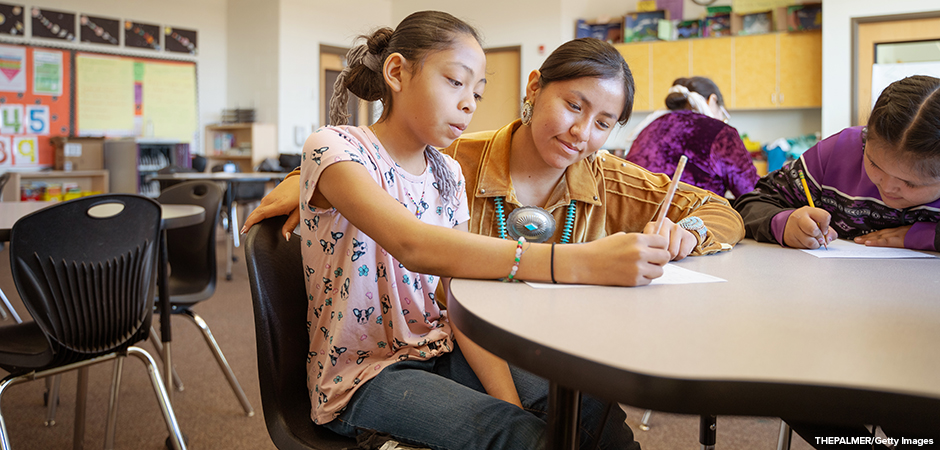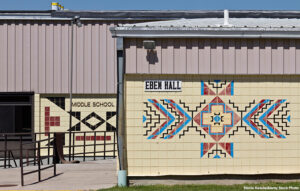
How to teach Native American history in South Dakota social studies classrooms has been an ongoing debate for more than a decade. In 2007, the Indian Education Act required that courses and curriculum in South Dakota American Indian history and culture be developed by the state’s Department of Education. The following year, a team of educators and experts on Indigenous language and culture collaborated with the South Dakota Department of Education to develop a set of standards called the Oceti Sakowin Essential Understandings. Recently, the State senate has taken up the question of whether these Essential Understanding are being taught. Here, btw takes a closer look at the situation.
What is the OSEU?
Oceti Sakowin means “Seven Council Fires” and includes the Lakota, Dakota, and Nakota Native American people. In 2008, leaders of all nine indigenous groups agreed to the Oceti Sakowin Essential Understandings (OSEU). The OSEU are lessons and curriculum that require students to develop a basic understanding of the culture, history, and heritage of the indigenous people of their area.

Supporters of the OSEU standards argued that teaching indigenous people’s history, culture, and language will help Native American students, many of whom struggle with low performance at school, to perform better. Many Oceti Sakowin leaders also hope that teaching these lessons will help ease tension between Native people and white South Dakotans.
Slow Teaching Progress
In 2018, the state’s Board of Education approved the OSEU standards and made them an option to study for all K-12 students.
However, a survey sent out by the state’s Department of Education and Department of Tribal Relations in 2021 revealed that not all teachers were teaching the standards. Despite the fact that the state provided 10,000 copies of OSEU books and held training programs, many teachers said that they felt they didn’t have adequate resources and knowledge to teach the standards effectively. In fact, as of 2023, only 62 percent of social studies educators reported teaching the standards in their classroom.
In addition, in 2021, South Dakota updated its social studies standards. When they did, they left out some indigenous education lessons and specific references to the Oceti Sakowin people. In 2022, a bill was introduced in the South Dakota Congress to make OSEU standards a requirement for all social studies classrooms. But the bill failed.
A New Bill is Considered
Recently, a new version of the bill faced the South Dakota Senate–SB196. This bill requires the state’s Board of Education to develop new rules to ensure that the OSEU standards are taught in all K-12 social studies classrooms. It changes the existing language from saying that these standards “may” be taught to saying that they “must” be taught. In addition, the Board must also consult with the South Dakota Indian Education Advisory Council as it develops these rules.
In February 2025, SB196 passed the Senate Education Committee and moved to the Senate floor. However, it failed in the Senate on February 18, 2025, by a vote of 7 to 28.
